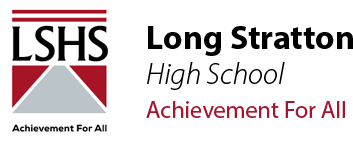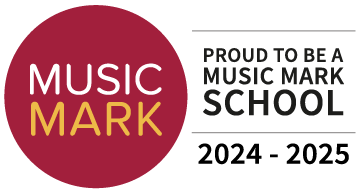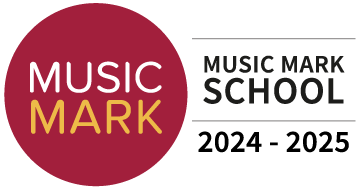Computer Science and Creative iMedia
At Long Stratton High School, pupils study computer science at Key Stage 3 and have core ICT lessons at Key Stage 4. These lessons provide them with a vast opportunity of functional and transferable skills in line with the government requirements and meeting pupils’ needs in preparation for further education and employment.
Computer science is at the heart of modern life. We aim to help students to think logically and use technology to solve a wide range of problems. We encourage all students to be creative with technology and be confident as both users and developers of software tools, including understanding how to stay safe in the connected digital world.
Computer science has become an ever-growing part of human life, affecting many aspects of a person’s day. Computer systems are embedded ubiquitously in everyday devices, smart phones, washing machines, heating systems and vehicles, as our world embraces “The Internet of Things”. Computer scientists have an impact on how our society advances by developing and maintaining these systems: whether it be for our home, work, learning or entertainment environments. Computer Science is an exciting and rapidly evolving subject that offers excellent employment prospects and well-paid careers.
Key Stage 3
The curriculum has been designed to ensure learners have sufficient knowledge to stay safe online and use computers safely in life. We want students to not only understand how to use technology effectively, safely and responsibly, but also how technology is developed and constantly redeveloped into new and exciting tools. The curriculum also provides a focus on developing resilient learners who can recover from mistakes and effectively solve problems. This will help develop a lifelong effect of learning and how to develop themselves further and prepare for the future.
By the end of Key Stage 3, pupils should:
- Be aware of the opportunities and limitations of living in a digital world
- Understand the core principles of information and computation, how digital systems work and how to put this knowledge to use through programming or product creation.
- Be equipped to use technology to create programs, systems and a range of content.
- Become digitally literate – able to use computers to express themselves and develop their ideas.
Key Stage 4 (Core ICT)
In Year 11 Core ICT, pupils are introduced to careers education. We are fully committed to ensuring that all of our pupils acquire the skills, knowledge, attitude and understanding to manage their learning and careers aspirations and to work towards them becoming an independent and productive adult who can achieve their full potential. The Year 11 careers programme gives pupils the opportunity to explore and identify their interests, skills and abilities through a variety of exciting research and classroom-based activities. The emphasis throughout the programme is on ensuring that pupils are making informed choices about their future.
Key Stage 4 Options
We have a broad range of subjects offered at Key Stage 4. These options may complement each other with many students opting for more than one at the end of Year 9. We currently offer the OCR GCSE Computer Science, Edexcel GCSE Business Studies and OCR National Creative iMedia.
Students wishing to follow the technical route may choose GCSE Computer Science.
GCSE Computer Science
The OCR GCSE Computer Science (9-1) course gives students a real, in depth understanding of how computer technology works. It offers an insight into what goes on ‘behind the scenes’, including computer programming, which many students find absorbing. This is a rigorous and challenging qualification that aims to give students a thorough understanding of computational thinking and algorithms. Students will have the opportunity to build their own programs to help solve problems of given tasks and develop a greater awareness of the rapidly changing computing field. Content covered is widespread and includes software development, cyber security, and systems architecture. This is a high intensity, mathematically and logic driven course that requires a tolerant aptitude and a methodical approach to solving problems. Students must be willing to invest their time outside of school hours in order to develop their generic IT based skills.
Please see the course specification here.
OCR National Creative iMedia
Alternatively, we also offer a Level 2 Certificate in Creative iMedia. Creative iMedia is media sector-focused, including film, television, web development, gaming and animation, and have IT at their heart. This qualification will encourage independence, creativity and awareness of the digital media sector and will equip learners with a range of creative media skills. It will also provide opportunities to develop transferable skills such as research, planning, review, working with others and communicating creative concepts effectively. The course consists of three units, two of them are based on coursework and the third is a written exam, which is completed in the summer of Year 11.
Pupils will be studying the units below:
R093: Creative iMedia in the media industry
In this unit, students will learn about the sectors, products and job roles that form the media industry. They will learn the legal and ethical issues considered and the processes used to plan and create digital media products. They will learn how media codes are used within the creation of media products to convey meaning, create impact and engage audiences. They will learn to choose the most appropriate format and properties for different media products.
R094: Visual identity and digital graphics
In this unit, students will learn how to develop visual identities for clients. They will also learn to apply the concepts of graphic design to create original digital graphics which incorporate their visual identity to engage a target audience.
R095: Characters and comics
In this unit, students will learn to design and create original characters that convey emotion and personality. They will also learn to set characters within stories of their own making which flow logically and engage the reader. They will also learn to use conventions of comics to tell characters’ stories across multiple pages.



